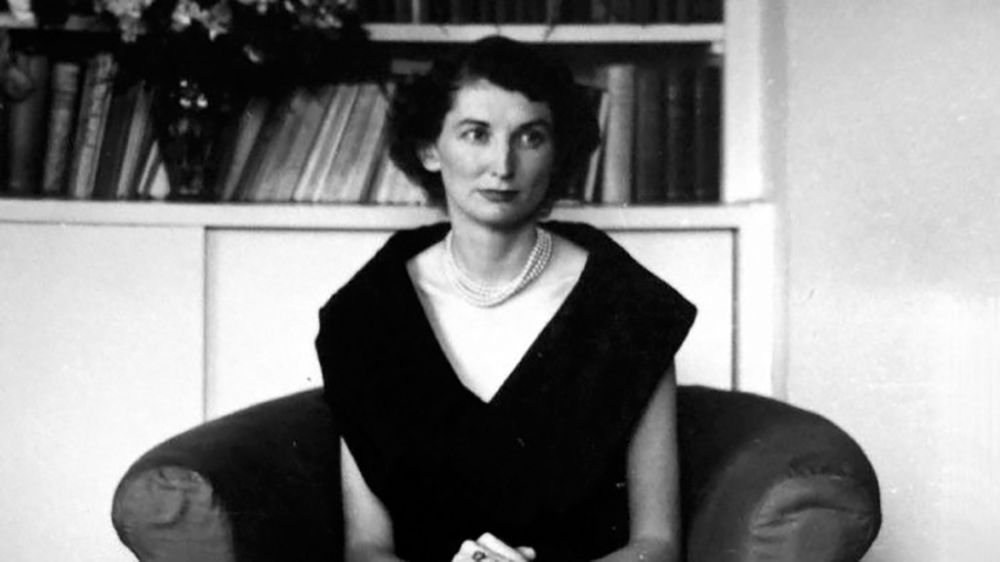When she died last December at the age of ninety-eight, the novelist Elizabeth Spencer was described as “a national treasure.” The author of nine novels, eight story collections, a memoir, and a play, she had mastered every mode of literary fiction. Her first novel appeared in 1948 and her most recent book in 2014. On the page, Spencer makes what’s technically difficult seem unusually clear, then psychologically inevitable. From the start, her voice was praised for its tonal nuance, its stratospheric empathy. Spencer had the gift for infusing social situations with a bullfight’s fatality.
She was born in 1921 in the waning plantation culture of Carrollton, Mississippi. Senator John McCain was her second cousin. She grew up owning a horse and believing in ghosts. The subject of race was inescapable in the Jim Crow South and it figured strongly in her fiction.
At her career’s very start, Elizabeth Spencer won the admiration of wise older writers, fine judges of talent like Robert Penn Warren and Eudora Welty. They identified her depth of insight, her fellow feeling, and the warm richness of her character.
A Guggenheim Fellowship in 1953 allowed her to depart Mississippi for Italy. There she met and married John Rusher, an Englishman from Cornwall. The couple moved to Montreal in 1956. I first encountered Spencer when I published my first story at age twenty-six. She sent me a letter praising what I’d done. Beginner’s luck on all fronts. When Spencer became writer in residence at the University of North Carolina in 1986, she took up residence in Chapel Hill, where we became neighbors.
Though she was my parents’ age, I always considered her a contemporary. I admired her irreverent wit, her forgiving nature, her unsentimental love of animals. Elizabeth had some essential confidence that made her wonderfully receptive to others. Thin, she wore clothes it seemed she’d always owned. She was beautiful but—as a lapsed tomboy—didn’t seem to have noticed yet. She was an old hand at receiving and flirting with “gentleman callers,” and I was quite happy to be one. Her loyalty to friends was returned by a community that quietly adored her.
Spencer’s fiction reveals a trenchant eye for what’s questing and ludicrous and therefore fully human. She has the keenest ear for all that people try to say but rarely speak aloud. She proved herself an indispensable witness to the difficulties of having a home and then leaving it, to the struggles of smart, sexually alive young women trying to find their way in the world. She had an aristocrat’s insouciant talent for being talented. She treated others as her equals, though few actually were.
Her 1956 novel The Voice at the Back Door offered a prophetic overview of the Civil Rights era. The work chronicles the twisted politics surrounding a small town’s execution of black citizens. The New York Times pronounced it “practically perfect.” Editorial pages in Mississippi rebuked her as a traitor. The book was unanimously chosen by the Pulitzer jurors, but its governing committee chose to give no prize in 1957. Spencer’s candor about virulent segregationist racism is sometimes cited as the reason her award was withheld. Four years later, in 1961, To Kill a Mockingbird—based on a similar racial crime and clearly influenced by Spencer’s book—told its story from a child’s perspective and won the Pulitzer.
In 1962, Spencer’s long story “The Light in the Piazza” was filmed with Olivia de Havilland. And in 2005, the work became an opera of great freshness and force, winning six Tony Awards. It has become a staple of world theater.
In The Paris Review’s Art of Fiction interview, Spencer was asked if she had ever adjusted to leaving the South. She responded, “Oh, no, I can never ‘adjust’ to losing anything I love. You have to count on memory more and daily rhythms less. But memory is a muse, after all, a girl with a vital life of her own.”
Let it be stated: as great as Elizabeth Spencer will remain on the page, she equaled and surpassed that as a friend.
Allan Gurganus’s books include Local Souls and Oldest Confederate Widow Tells All. Winner of the Los Angeles Times Book Prize, Gurganus is a Guggenheim Fellow and a member of the American Academy of Arts and Letters.
from The Paris Review https://ift.tt/2T24LdT

Comments
Post a Comment